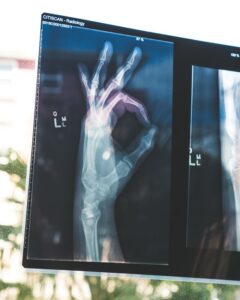I often get calls from potential clients who are seeking help in understanding their rights. They want to understand how the legal process works when they’ve been injured due to another’s negligence.

Understandably, these victims want some guidance. It can be complicated, frustrating, and an emotional drain trying to figure these things out. However, many will often tell me that they appreciate the advice but would like to attempt to resolve the case on their own through direct negotiation with the insurance company. They’ll say, “If that doesn’t work, is it okay if I call you back?” Though the answer is always, “Of course,” it is critically important to understand the damage that can be done to your personal injury case when you don’t retain a lawyer at the outset.
Statute of Limitations
In Virginia, personal injury cases generally have a two-year statute of limitations. That means that within two years of the date of the occurrence, you must have either filed a lawsuit or agreed to settle your case. Otherwise, your claim will be time-barred forever. This means that the clock begins running the day you are in an accident. If you find yourself close to the statute of limitations without the case being resolved, the only way to safely preserve your claim is to file a lawsuit.

While Virginia citizens have the ability to file their own lawsuits, an attorney is much better equipped to handle this type of legal proceeding. Generally, an attorney will want to have time to fully investigate your matter and attempt to negotiate a settlement prior to filing a lawsuit. The closer the statute of limitations gets, the less time there is for an attorney to fully understand your case before it’s necessary to file—and the harder it will be for you to find a lawyer who will take your case.
Investigation
It goes without saying that people often forget things. When witnesses forget things, critical information concerning your accident may be lost. People can also disappear altogether, whether moving to a new state or changing their phone number. Likewise, there may be evidence at the location where your injury occurred, such as in the case of a slip and fall.
Attorneys have investigators, either on staff or whom they hire, that can reach out and interview witnesses and police officers, as well as send Freedom of Information Act (FOIA) requests, in order to help obtain and preserve this evidence.

Medical Treatment
While my colleagues and I are not doctors, we have become familiar with many, if not most, of the healthcare providers in the area where we practice. Though we do not guide your medical care, we can provide advice about where you might seek follow-up treatment if you are struggling with a health insurance issue, not having a primary care physician, or are unsure where to turn next.
“Spoliation”
While “spoliation” is often mischaracterized as “spoilization,” the name is still apt. Just like food on your counter, evidence in your personal injury case tends to become unusable as time goes on.
“Spoliation” is the destruction or alteration of evidence resulting from a party’s failure to preserve evidence relevant to a legal claim of action.
A spoliation letter directs a potential tortfeasor to preserve specific evidence which may be the subject of a personal injury claim and an eventual lawsuit. This evidence can take many forms:
information, media, and data that can be very important toward proving your case. Without this specific request and notice, the party you intend to make a claim against may destroy evidence related to your case without consequence.

Some of the most common items an attorney will attempt to preserve in your case include:
- Electronic data recorders (EDR), or the “black box”: These are connected to many commercial vehicles such as tractor-trailers. These devices record data like speed before a crash, direction, steering action, braking, etc.
- Surveillance video: This footage may have captured your car accident or your trip and fall at a store.
- Dashcam video
- Photographs
- Objects and products which caused or are related to your injury
Unless an attorney represents you, they have no ability or authority to send a spoliation letter on your behalf to preserve this vital evidence.

Unfortunately, in the absence of such a spoliation letter or request to preserve evidence, the alleged wrongdoer may not have the notice necessary to trigger their legal obligation to preserve the evidence.
Many clients or potential clients end up telling me, “They should have a video,” without realizing that the surveillance videos are often deleted or overwritten within a very short time period. Defendants may even have the incentive to destroy or “lose” this evidence if it proves that they were negligent.
Don’t let the evidence in your case expire or be destroyed—and don’t face legal battles alone. Contact the personal injury attorneys at Allen & Allen for a free consultation today, at 866-308-1347.




